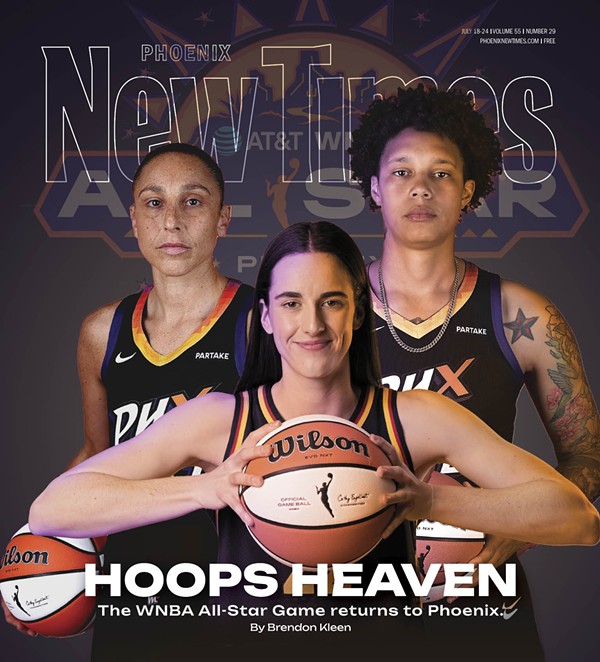Forgotten in the rush to canonize Bob Marley and lionize his son are three women who were an integral part of the Marley legend.
Judy Mowatt, Rita Marley and Marcia Griffiths were known as the I-Threes. From 1974 until Marley's death in 1981, this strong-willed, strong-voiced vocal threesome was Marley's "back-up" singers. Their rich voices and stylish choreography were the cornerstone of the reggae superstar's show.
On their own after Marley's death, the three women have gone their separate ways to become the leading female voices in the male-dominated world of reggae. Although occasionally reuniting to tour as the I-Threes, Mowatt, Marley and Griffiths have spent most of the past ten years focused on their respective solo careers. Considering the bond among the women, it's no surprise that their careers share a lot of similarities.
For example, although all three have built repertoires around reggae, they've also tried to cross over onto the pop and, now, dance charts. These Jamaican-born singers also share a record label--world-music-oriented Shanachie Records. And this year each woman released an album on that label--Rita Marley's We Must Carry On, Marcia Griffiths' Steppin' and Judy Mowatt's Look at Love.
Lyrically, each member of the I-Threes remains deeply committed to socially conscious music. The trio's songs attack injustice and advocate change. Rita Marley, Bob's widow, is probably the most successful at giving her political messages a convincing bite.
Griffiths, on the other hand, has made the most headway in crossing over onto the pop charts. Last year she even jumped to major label MCA for the synth-dance hit Electric Boogie. Staking out the musical and lyrical ground between her two former mates, Mowatt blends both politics and pop in her work.
Mowatt's solo career got off to a fast start with the release of her landmark second solo album, 1979's Black Woman. So far, it remains the high-water mark in her career. One of the few women in reggae to write and produce her own records, Mowatt has recorded four albums since. In recent years, her records have benefited greatly from the work of reggae's finest rhythm section, drummer Sly Dunbar and bassist Robbie Shakespeare. Both men are part of Mowatt's current road band.
Mowatt is also the only one of the I-Threes to have toured regularly. Unlike most concert audiences, which tend to be defined by age or race, Mowatt crowds draw on every social class and musical taste. You are just as likely to see a pinstriped suit at a Mowatt concert as you are dreadlocks. With her warm stage presence and unforgettable voice, Mowatt transcends the usual limitations of reggae, winning fans even among those bored with reggae's often repetitious rhythms and nonsensical lyrics.
Which brings us to the biggest difference between Judy Mowatt and the other I-Threes. Although Marley and Griffiths loyalists may not agree, the ten years since Marley's death have shown Mowatt to be the most charismatic performer of the trio.
She is also the I-Threes best songwriter. Her selection of covers is inevitably more interesting than either Griffiths' or Marley's. And vocally, Mowatt can command more octaves than the other two. Her full-bodied soprano has often been compared to that of Sixties soul queens like Martha Reeves and Lavern Baker.
Mowatt's skill as a vocalist has made her determined to break out of the confines of reggae.
"I am not a reggae singer," she says vehemently over the telephone from Chicago. "I can handle other kinds of music. I've sung jazz, calypso and even pop tunes." Already anticipating the next question, she begins to talk about a rhythmically charged cover of the old Rascals hit "Groovin'" on Look at Love. "People have a notion that pop songs are bad," she continues. "Everyone's convinced they're a sign you've sold out. Lost your faith. I include pop tunes because they can draw people to my album and to the other songs and messages that are there--not because I'm dying for a hit. "Pop tunes also allow me to spread my wings. No one wants to sing serious songs all the time, do they? Reggae will always be my indigenous music, but I'm never going to limit myself where music or messages are concerned."
In Mowatt's work, the message is as important as the music. It's a musical philosophy she inherited from Bob Marley. Mowatt's constant theme is a personal faith in the restorative powers of love. Both of her last records-- Love Is Overdue and Look at Love--even feature the word in their titles. As it was with John Lennon, love remains the source of Mowatt's inspiration and the essence of her message.
"When you look around, it's clear that our generation has not done a wonderful job with the world," Mowatt says. "We are never at peace, never at rest. Even the things you think are changing--apartheid, for example--haven't really changed. "The only thing that can truly change the world is love. The problem is if no one gives you love, then you don't have it to give. It becomes a vicious cycle. If I have one message, it is that you must love yourself, otherwise you'll never love others."
Mowatt admits she wishes some of the love shown her by fans would translate into more money. And what is the first thing Judy Mowatt would do if she were making as much as Ziggy Marley? Mowatt would fly. Anything, she thinks, even bad food at 30,000 feet, beats taking the bus.
So far on this tour, Mowatt and her band have nearly baked when the bus's air conditioning broke. A week later, they almost froze when the heat went out. And if heating and cooling problems aren't enough, a serious accident in North Carolina in September put the Mowatt's bus driver and her 18-year-old son in the hospital. "Now do you see why I want to fly?" she asks. None of these grim Greyhound tales made it to the set list. Mowatt remains firmly convinced that performers must try to keep their problems backstage. It's another thing she learned from Bob Marley, who in 1976 went back to work despite serious wounds he suffered in an assassination attempt. Four years after that, suffering from undiagnosed cancer of the brain and lungs, Marley kept on performing until he literally collapsed onstage. Seven months later, he was dead. "The road is no fun," Mowatt says bluntly. "And right now I don't have the financial resources to make it work like it should. I mean, it's hard to drive 17 hours and play the same night, you know? "Nevertheless, I'm not shortchanging my audiences. They don't know what you've gone through behind the curtain. They're out there waitin' for you to bring joy and happiness into their lives and you must deliver."
Judy Mowatt will perform at Chuy's on Sunday, November 17. Showtime is 8 p.m. Stricklee Business will open.
Their rich voices and stylish choreography were the cornerstone of the reggae superstar's show.
You are just as likely to see a pinstriped suit at a Judy Mowatt concert as you are dreadlocks. The ten years since Marley's death have shown Judy Mowatt to be the most charismatic performer of the I-Threes.
"The only thing that can truly change the world is love.










